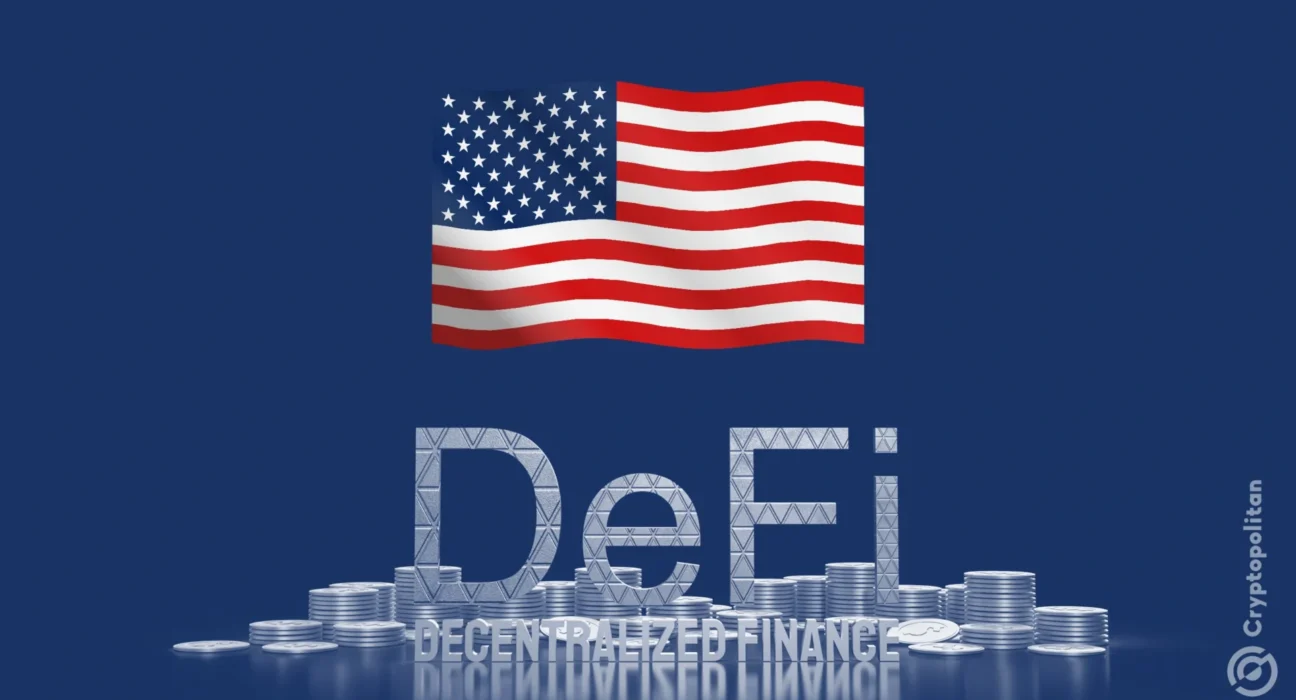Decentralized finance (DeFi) isn’t a replacement for traditional finance. That’s the message from Federal Reserve Governor Christopher Waller.
Speaking at a recent conference, Waller said DeFi could only play a complementary role to traditional financial systems, improving efficiency without eliminating the need for intermediaries.
“The potential for DeFi to streamline and improve existing processes is huge,” he said. “Intermediaries arise because matching buyers and sellers can be costly and time-consuming.”
DeFi will never fully decentralize finance
Financial intermediaries have been around for a long time. Waller gave a practical example: if you wanted to lend some money, you’d have to find a borrower, negotiate terms, and handle all the risks of default. Not an easy task for the average person.
That’s where banks come in. They streamline this process by connecting lenders with borrowers, handling legal paperwork, and managing risk. It’s why banks first popped up in ancient Mesopotamia and why they’re still here today.
“Intermediaries extract value by reducing the time and effort needed to complete trades,” Waller said, referring to the work of economists Ariel Rubenstein and Asher Wolinsky.
He acknowledged that, while DeFi’s technology can reduce the need for some of these intermediaries, they still offer a service people need. And there’s a cost for that service.
That cost (you know — fees, loss of control over assets, and a reliance on trust) is where DeFi steps in. DeFi technology, including blockchain and smart contracts, wants to solve those problems.
But Waller did warn that this doesn’t mean everyone will be rushing to ditch their banks anytime soon. The trust in CeFi, despite its drawbacks, is something that DeFi can never entirely replace.
The role of technology in finance
“Bitcoin was designed for a world where trust doesn’t exist,” Waller pointed out. “Smart contracts reduce risks in settlement processes by ensuring that neither party will lose out if the other fails to deliver.
He added that these technologies are still in their early stages, but their potential to handle complex financial transactions is clear. Just not quite enough.
Another key part of Waller’s speech focused on stablecoins. These coins can provide a “safe” asset for decentralized trading, reducing the need for traditional payment intermediaries.
But, as the Fed governor warned, stablecoins aren’t without their risks. He referenced past cases where synthetic currencies collapsed when too many people rushed to redeem them.
“If stablecoins are going to be widely used, they need to be backed by appropriate guardrails to prevent runs and mitigate illicit finance risks,” Waller said.
He believes that complete decentralization isn’t realistic. “Intermediation still has value for most people,” he said.
Even in the crypto community, most users rely on centralized exchanges to make trades. These exchanges act as intermediaries, holding customers’ assets and executing trades on their behalf. This reintroduces the need for trust, even in a “supposedly decentralized” system.
Waller then shared his concerns about the risks unique to DeFi. One of those is the potential for DeFi platforms to be used by bad actors.
Traditional finance systems are regulated to prevent money laundering, fraud, and other illegal activities. But DeFi operates in a more unregulated space, raising concerns about its potential misuse.
“Do we need similar regulations for DeFi to protect the broader financial system from spillover risks?” Waller asked.







